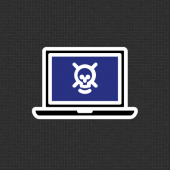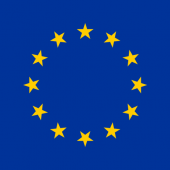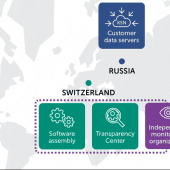-
Fxmsp Chat Logs Reveal the Hacked Antivirus Vendors, AVs Respond
A report last week about Fxmsp hacker group claiming access to the networks and source code of three antivirus companies with offices in the U.S. generated statements from alleged victims that are disputed by the firm that sounded the alarm.
- May 13, 2019
- 07:25 PM
 4
4
-
New Details Emerge of Fxmsp's Hacking of Antivirus Companies
It is difficult to fathom that a threat actor may be able to breach the networks of a reputed security company. Yet, this is not only possible but also happened in the past; and it is not far-fetched to believe that it is the case with at least three antivirus makers, as reported by BleepingComputer earlier this week.
- May 13, 2019
- 11:52 AM
 6
6
-
Hackers Selling Access and Source Code From Antivirus Companies
A hacking group or individual is advertising access to the networks of at least three antivirus companies in the U.S. and source code for their software products.
- May 09, 2019
- 10:07 AM
 0
0
-
Dharma Ransomware Uses Legit Antivirus Tool To Distract Victims
A new Dharma ransomware strain is using ESET AV Remover installations as a "smoke screen" technique designed to distract victims while their files are encrypted in the background as detailed by Trend Micro.
- May 08, 2019
- 10:16 AM
 1
1
-
Firefox to Import Windows Root Certs To Avoid Antivirus SSL Scanning Issues
In order to prevent future errors caused by the SSL scanning feature of many antivirus programs, Mozilla is performing a test that imports the Windows root certificates into Firefox.
- March 25, 2019
- 04:29 PM
 1
1
-
Mozilla Resumes Firefox 65 Rollout After AVs Disable HTTPS Scanning
Last week Mozilla halted the rollout of Firefox 65 for Windows after users started reporting insecure certificate errors due to antivirus software conflicts. Now that antivirus vendors have disabled HTTPS scanning for Firefox, Mozilla has enabled the automatic update of Firefox 65 again.
- February 05, 2019
- 09:52 AM
 2
2
-
Mozilla Halts Firefox 65 Rollout Due to Insecure Certificate Errors
Mozilla has halted the automatic updates to Firefox 65 as users are unable to browse web sites due to certificate errors. These errors are being caused by conflicts between various antivirus program's HTTPS scanning and Firefox 65.
- February 01, 2019
- 12:12 PM
 1
1
-
Check Point Fixes Privilege Escalation Bug in ZoneAlarm Free
A security issue in Check Point's free edition of ZoneAlarm antivirus and firewall solution allowed a user with limited rights on the machine to inject and execute code with the highest privileges.
- January 24, 2019
- 01:13 PM
 0
0
-
The Best Black Friday 2018 Security, IT, VPN, & Antivirus Deals
Below we have compiled the best Black Friday deals for computer security, system admin, antivirus, and VPN software. These promotions have deep discounts from various companies and are only for a limited time. So if you see something you like, you should act on it as soon as possible.
- November 21, 2018
- 04:52 PM
 5
5
-
Microsoft Sandboxes Windows Defender
As the infosec community talked about potential cyber attacks leveraging vulnerabilities in antivirus products, Microsoft took notes and started to work on a solution. The company announced that its Windows Defender can run in a sandbox.
- October 29, 2018
- 06:37 AM
 3
3
-
New Reports Show Increased CyberThreats, User Risks Remain High
Two new reports from eSentire and Proofpoint show that that as online threats remain an issue, user security leaves much to be desired. The mismatch between the danger of cyberthreats and lack of user readiness could leave individuals or businesses at risk of serious losses to data or property.
- October 10, 2018
- 12:00 AM
 1
1
-
GandCrab Ransomware Author Bitter After Security Vendor Releases Vaccine App
The author of the GandCrab ransomware is a little bit bitter at South Korean security vendor AhnLab after the security firm released a vaccine for the GandCrab ransomware.
- August 03, 2018
- 10:24 AM
 1
1
-
Kaspersky Halts Europol and NoMoreRansom Project Co-Op After EU Parliament Vote
Kaspersky Lab announced it was temporarily halting its cooperation with Europol following the voting of a controversial motion in the European Parliament today.
- June 13, 2018
- 05:55 PM
 3
3
-
Today, the EU Will Vote on a Motion That Recommends Banning Kaspersky Products From Official EU Networks
In a plenary session of the European Parliament that will be held today in Strasbourg, France, members of the European Parliament (MEPs) will vote on a motion for resolution which includes a clause to ban the use of software programs "that have been confirmed as malicious, such as Kaspersky Lab."
- June 13, 2018
- 12:20 AM
 3
3
-
F-Secure Fixes Serious Vulnerability in Antivirus Products
F-Secure has fixed a severe vulnerability in its home and enterprise antivirus products that could have allowed an attacker to execute malicious code on the user's machine and take over affected PCs
- June 08, 2018
- 06:40 PM
 0
0
-
CrowdStrike to Pay Up to $1 Million Warranty If Its Clients Suffer a Data Breach
US cyber-security firm CrowdStrike announced yesterday a new warranty program for its customers, offering to cover up to $1 million in expenses if a customer protected by its top-tier endpoint protection solution (aka fancy word for antivirus program) suffers a security breach.
- June 06, 2018
- 03:41 AM
 2
2
-
Kaspersky to Move Data of Most Users From Russia to Switzerland
Kaspersky announced earlier today plans to move the user data of most of its customers to a "Transparency Center" in Switzerland, along with its "software assembly line."
- May 15, 2018
- 05:26 AM
 0
0
-
Intel to Allow Antivirus Engines to Use Integrated GPUs for Malware Scanning
Intel announced yesterday at the RSA 2018 security conference several new security-focused technologies, among which is a feature that will let security products offload virus scanning operations to integrated graphics processors embedded with some Intel CPUs.
- April 17, 2018
- 10:07 AM
 0
0
-
Microsoft Removes Antivirus Registry Key Check for All Windows Versions
Microsoft has decided to remove a mandatory "registry key requirement" it introduced in the aftermath of the Meltdown and Spectre vulnerability disclosure.
- April 11, 2018
- 09:30 AM
 0
0
-
Null Character Bug Lets Malware Bypass Windows 10 Anti-Malware Scan Interface
Malware that embeds a null character in its code can bypass security scans performed by the Anti-Malware Scan Interface (AMSI) on Windows 10 boxes.
- February 19, 2018
- 10:01 AM
 0
0

























